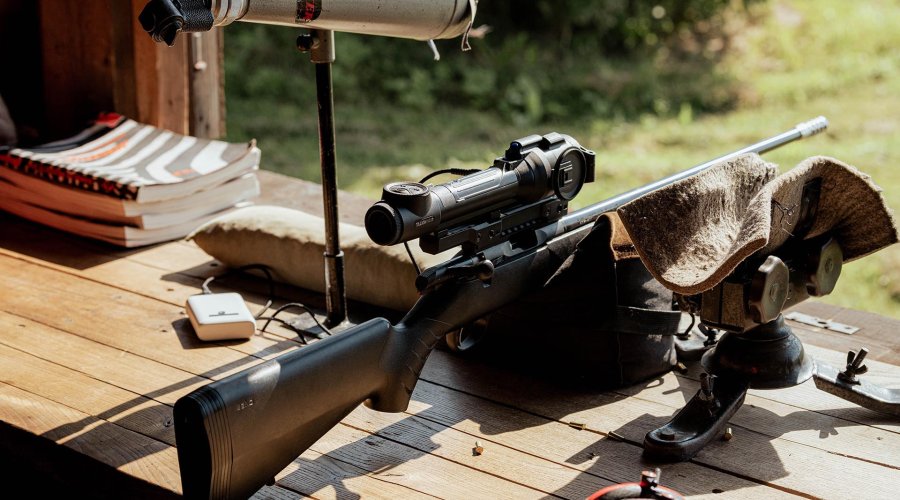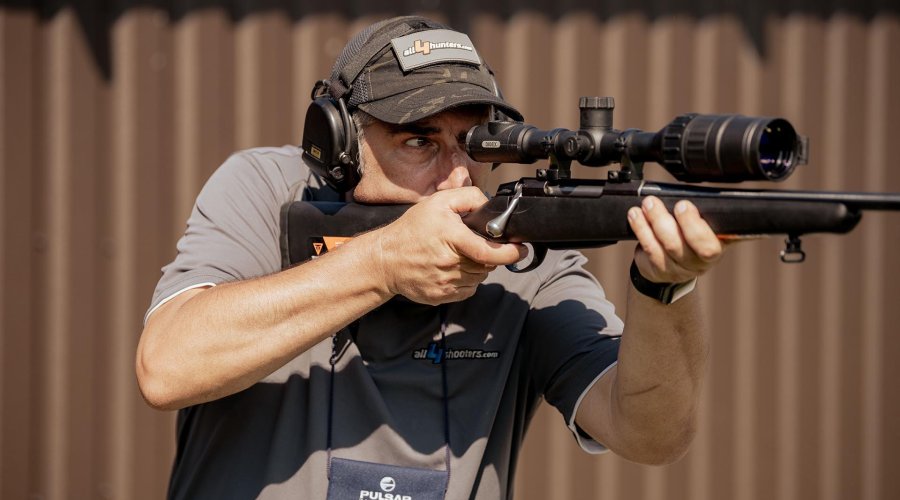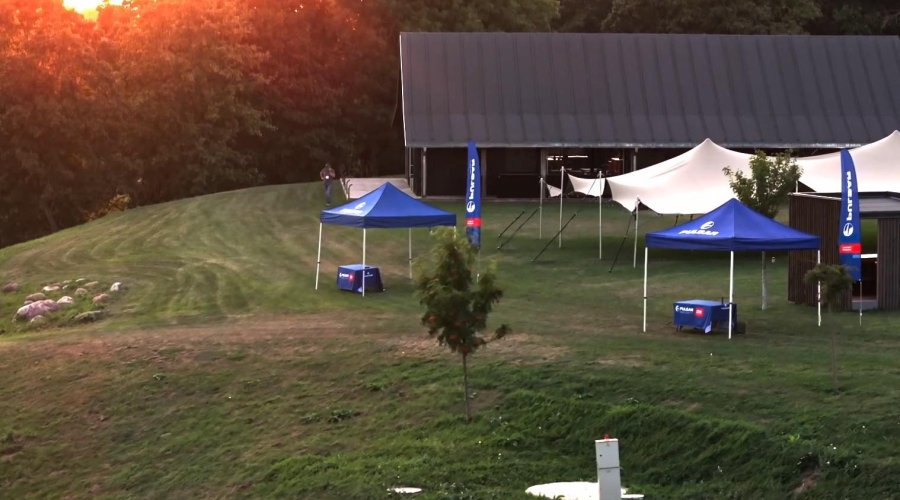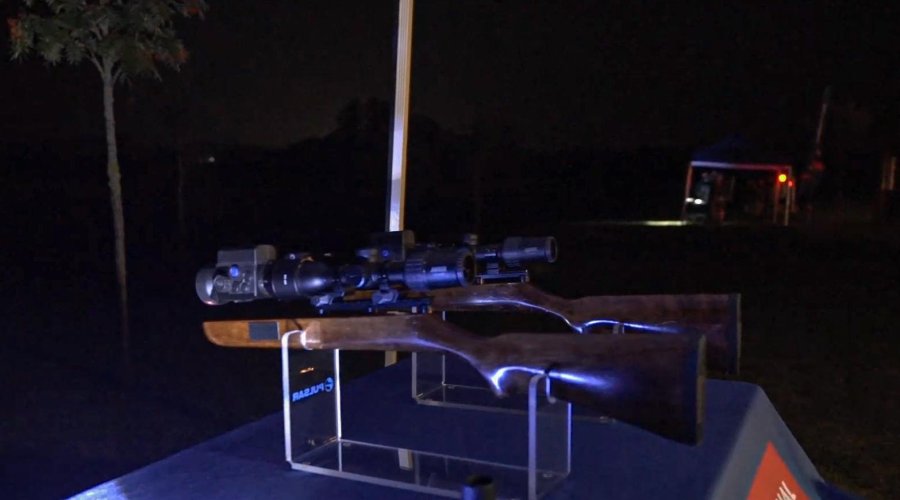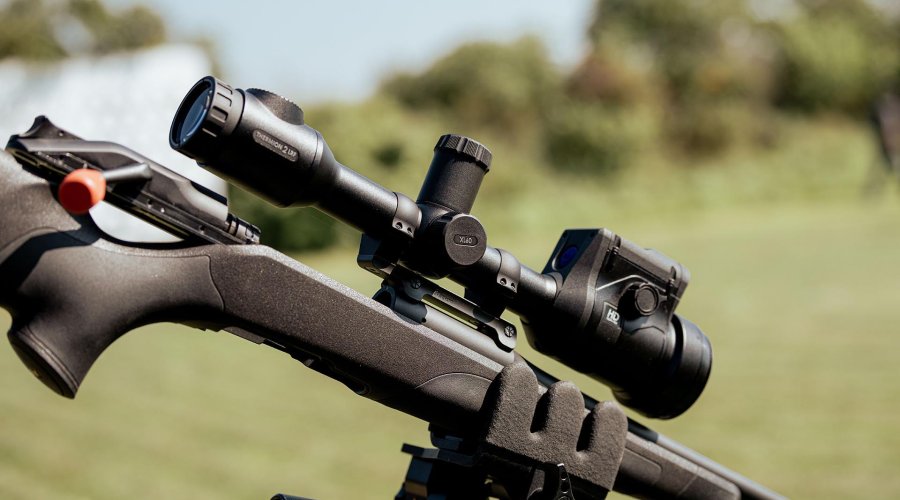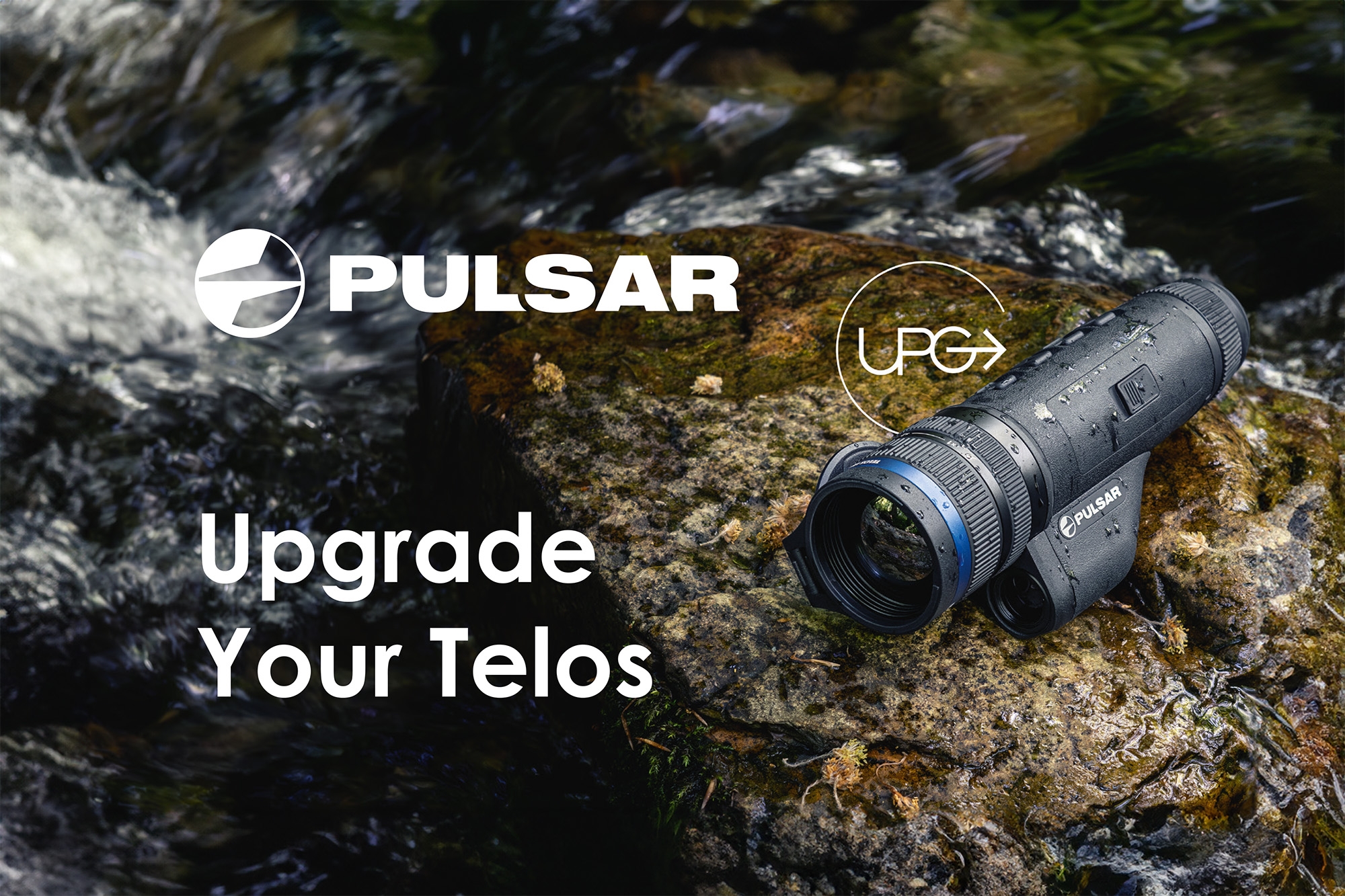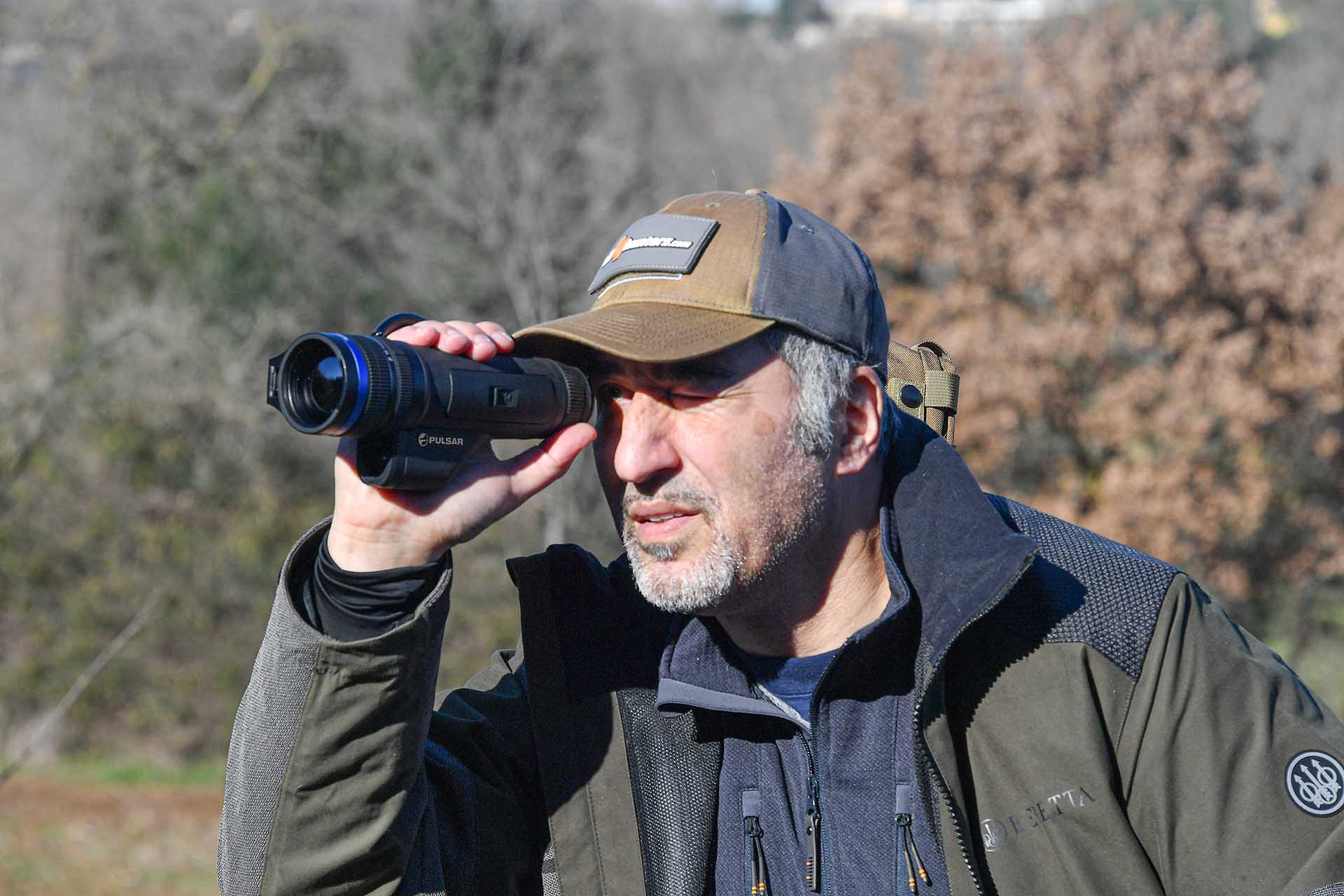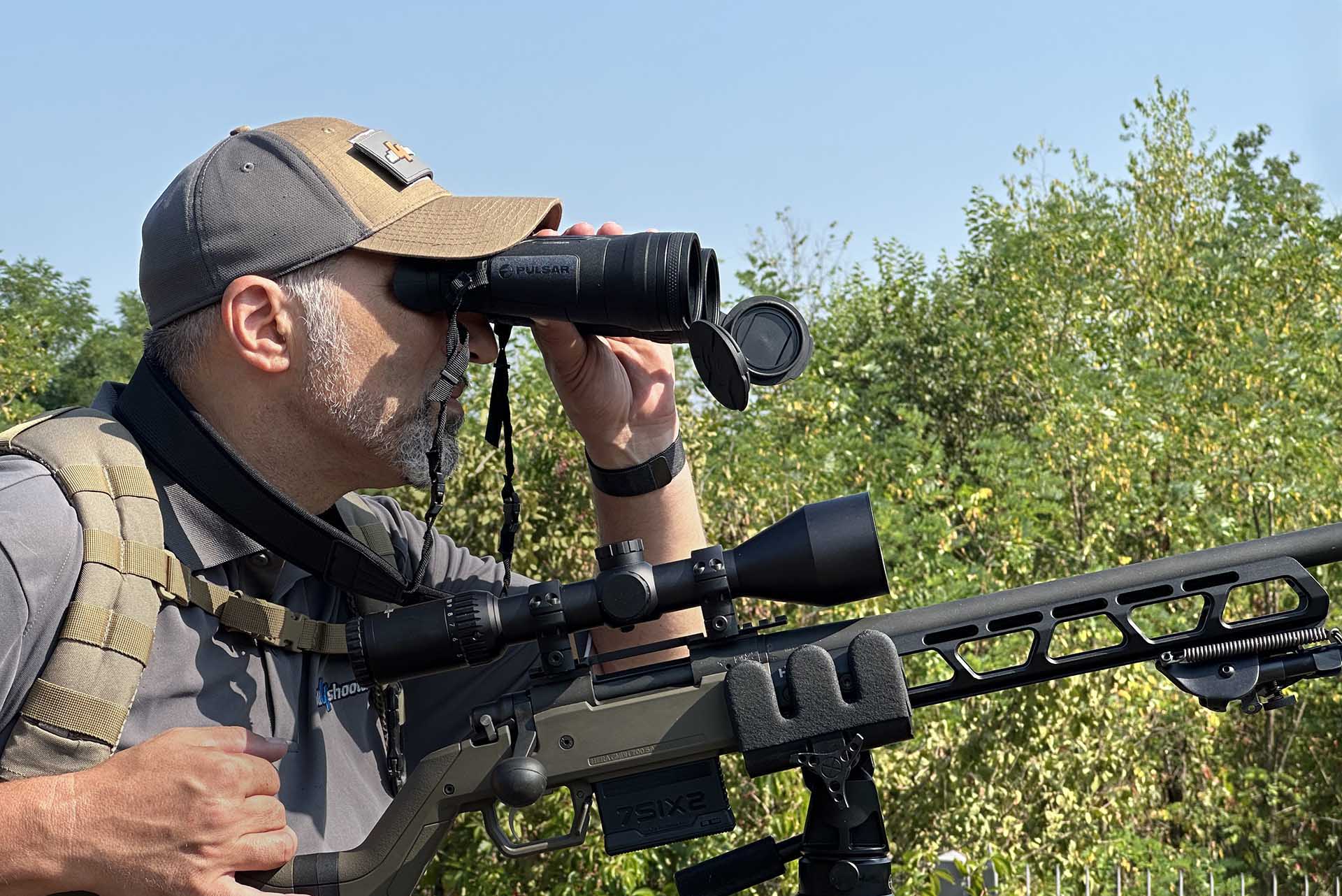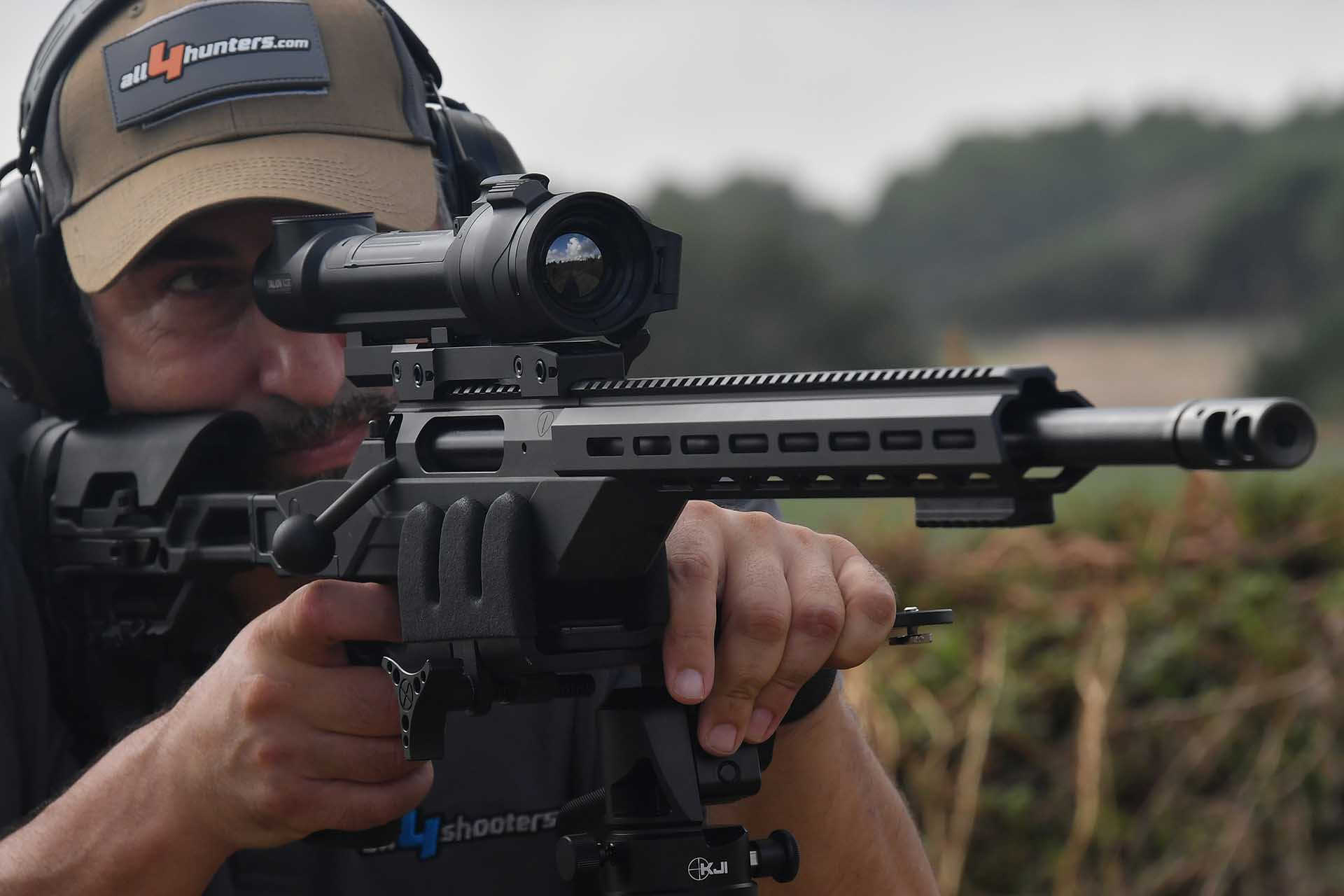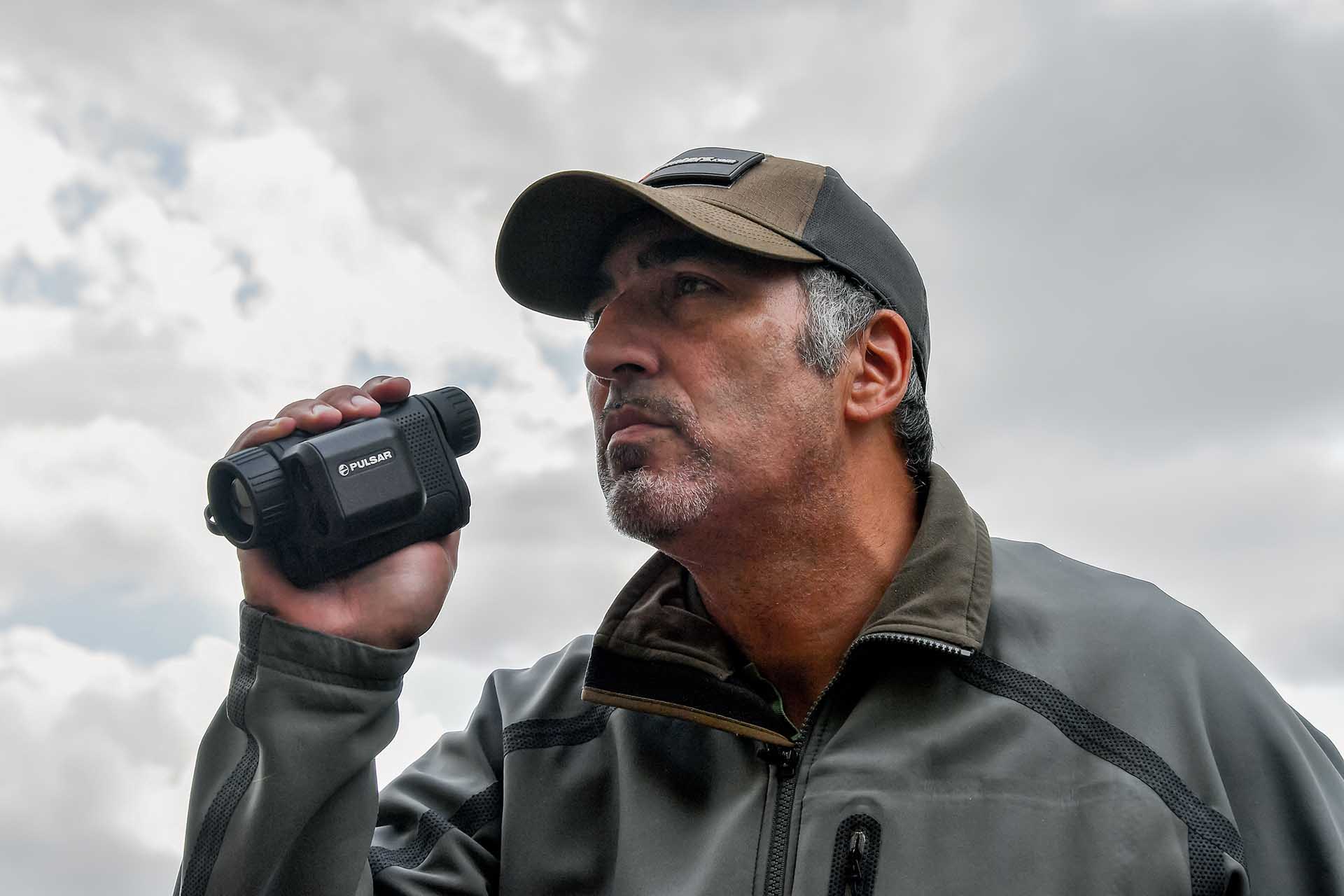Our readers know well the Pulsar brand. I’ve been reviewing, testing and using this European optics manufacturer’s products for decades.
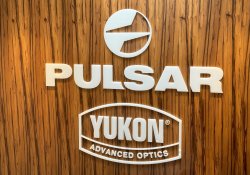
And before the brand Pulsar came to be in 2009, I’ve tested and used the optics built by its parent company, Yukon Advanced Optics, and before even that, the daytime scopes of Beltex Optics.
In fact, I pride myself in having had the rare chance and honor to meet personally, at the very beginning of the company’s farseeing venture into night vision technology in the mid 90’s, two of its key people: the late Aliaksandr Alsheuski, founder of the company, and Ivan Arbouzov, the President.
Ivan left many years back and unfortunately Aliaksandr passed on recently. Their heritage lives on.
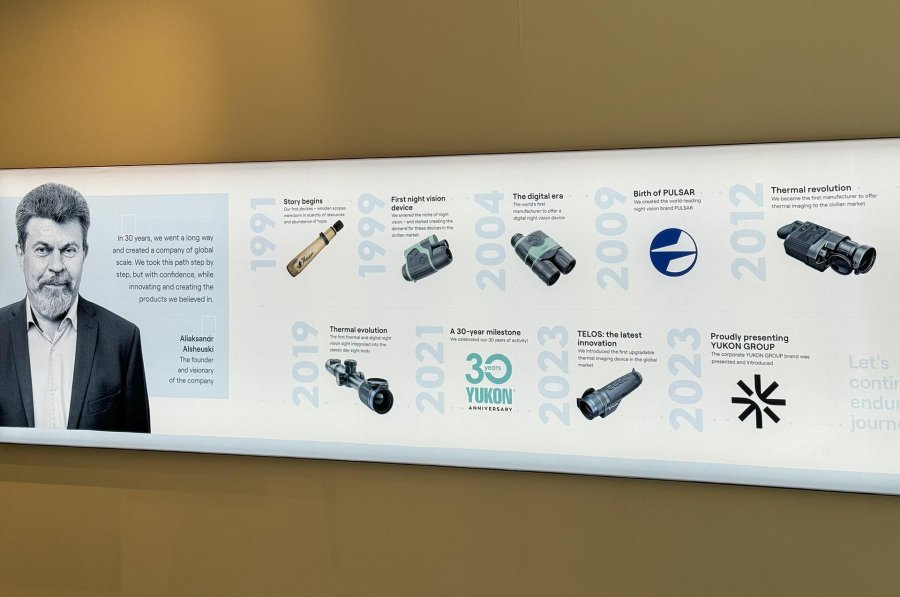
But, for a quick recap: Pulsar, based in Lithuania, is undoubtedly the world’s leading brand of specialized hunting and sporting electro optics, entirely designed, manufactured and assembled in the European Union, using again European sensors, optical elements, materials and technology. Pulsar develops everything in-house, down to the ASICs and software used across all their products, including the app, and even the nylon cases and slings.
Products built by Pulsar include digital night vision, thermal imaging and multispectral optics, integrated into binoculars, clip-on optics, riflescopes and observation monoculars. Quality and performance of these products I can attest today are the highest in the civilian market, bar none.
The visit to Pulsar headquarters in Lithuania
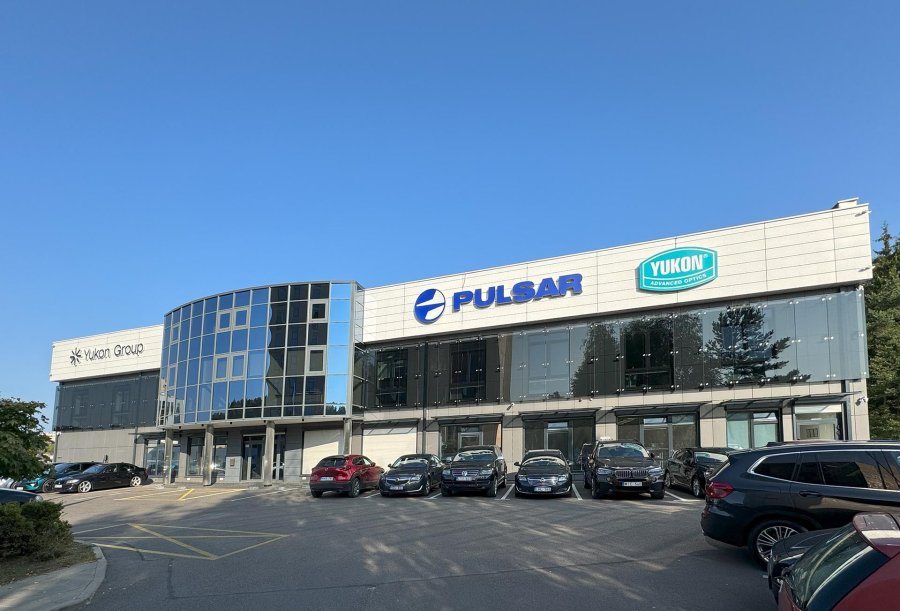
And now, the topic at hand: I’ve been invited, as part of a very small group of professional content creators, journalists and dedicated hunters from different countries, reporting to the international specialized press, to visit the headquarters and manufacturing facilities of Pulsar in Lithuania.
This very exclusive event included touring two facilities, one in Vilnius, Lithuania, and the other in Daugavpils, Latvia. As every factory tour follows a sort of tradition I already knew, more or less, what was to come: a presentation of the company, a visit to the research and development areas – of what can be visited of these of course – and then the tour of the assembly lines.
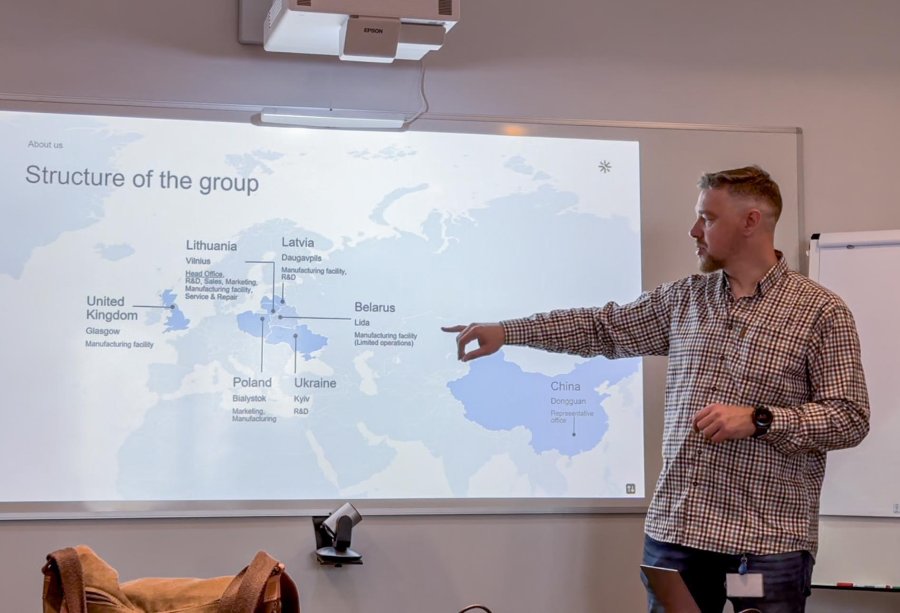
I did not expect instead to be hit by the candidness and sincerity of the people, the passion and dedication of everyone working in the company, the heritage, and the behind-the-lines efforts that Pulsar made, following the guidance of Mr. Alsheuski in the wake of the aggression in Ukraine, to secure its workers and employees, as a parent would do for his family. Liudas Abišala, Pulsar’s Chief Marketing Officer, explained this and more. The quality I already knew and enjoyed in Pulsar’s products start from pure passion – followed by a lot of hard work! I’ve learned that Pulsar is a much larger company than I remembered. Over 1000 employees are working presently in the company, and, while we are visiting the HQ in Lithuania, the Yukon group of which Pulsar is part of, operates from a number of locations all over the world and not only in EU – just imagine that there are three working languages used throughout the company. Liudas also gave us a good overview of the current product lineup and the roadmap for the next couple of years, including a sneak peek into some exciting innovations that are to come soon.
Once left the meeting room, it’s time to visit the manufacturing lines.
Assembling a thermal Imaging optic: two factories, the first in Vilnius
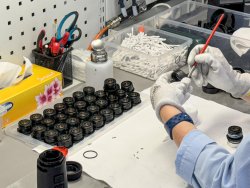
There are two manufacturing facilities, one in Lithuania and one in Latvia; both follow the same quality standards, and the same procedures are applied to any thermal imaging optical product that is being built.
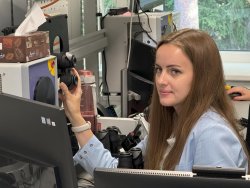
The assembly lines visited included the whole Telos series of observation optics, Merger binoculars, Krypton’s clip on optics, and Thermion riflescopes. Depending on the needs, the factories can make different products or even both build the same product simultaneously – i.e. at the time of the visit, the Thermion. The Vilnius plant is also responsible for a part of the R&D and all software, including the popular Stream Vision and Ballistics apps.
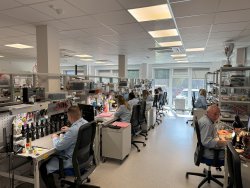
The assembly is an exacting and very methodical process, based on building blocks that are built into assemblies – or modules – that are then again put together to obtain macro assemblies, that in the end are built into a complete product. Every component gets tested to spec as it is built, so that the following step can be done with confidence, and the assembly tested once again, and so on.
The completed optic has also to be tested, and there’s a dedicated lab for this: temperature and environmental testing in climate-controlled machines, water pressure tests, vibration and impact / shock tests, and more, all following strict and rigorous industry standard protocols for certification.
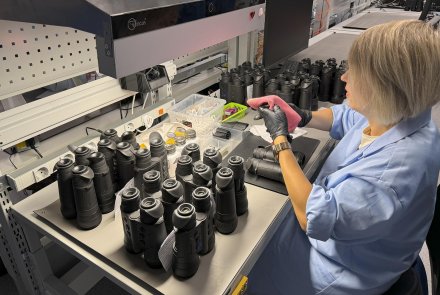
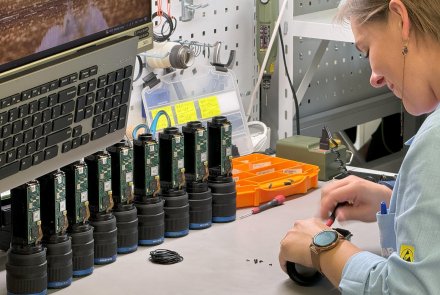
The very final step, as is for every product placed in commercial sale, is serialization, stuffing the retail box with the optic and its accessories and finally, off it goes into the shipping warehouse.
From Lithuania to another EU country, Latvia
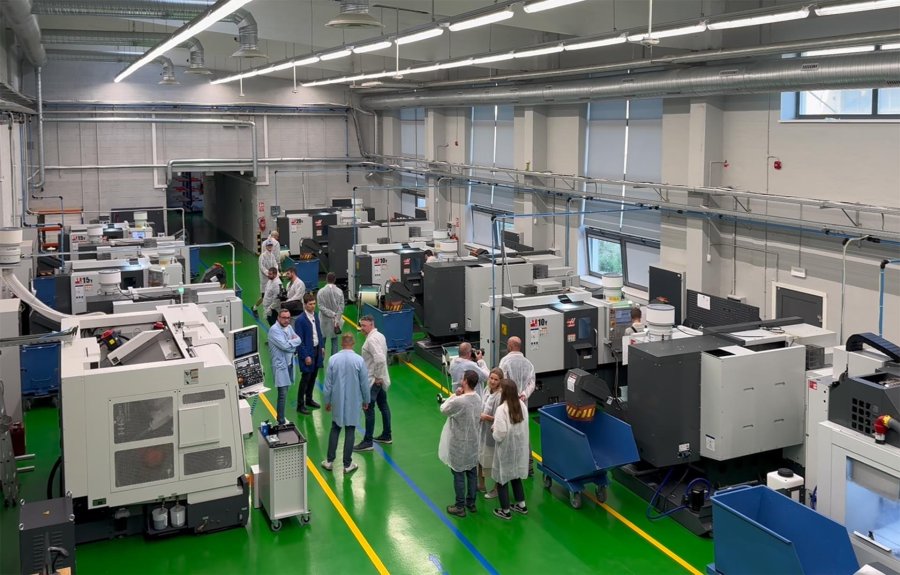
Most of what was showed in the Vilnius plant was final assembly – while in Latvia we also were shown the Plastics Division, PCB manufacturing, sensor assembly, electronic components storage… Arriving at the Daugavpils plant I could see that the investment Pulsar has made in the Latvian plant is impressive, it is obvious that the industrial area has been completely remodeled and revalued.
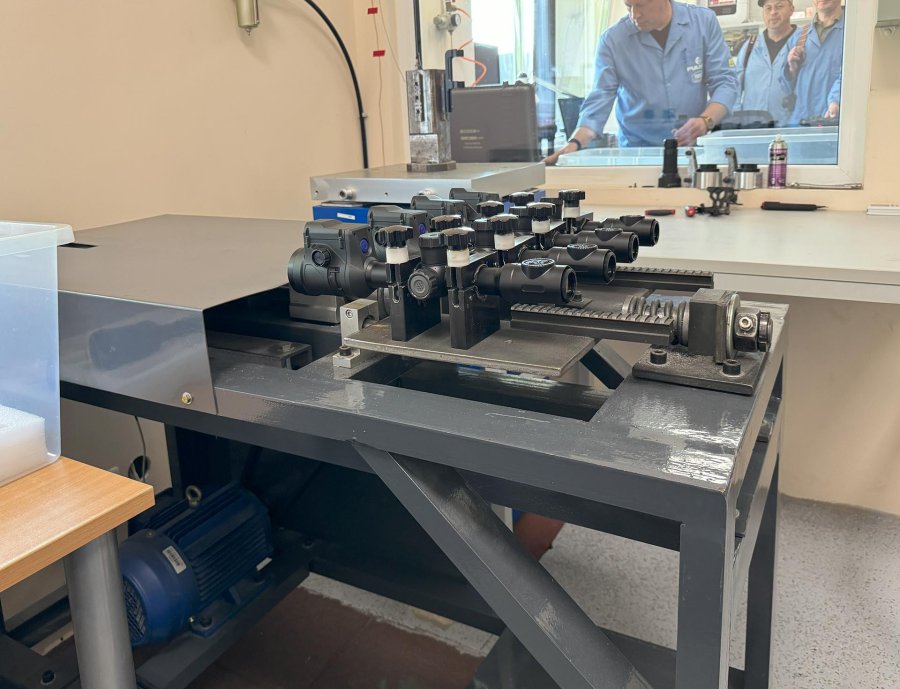
The Plastics Division has a number of state-of-the-art, vertical and horizontal inject molding machines, to create basically all the composite polymer parts that make up an optical device; parts such as the optic’s main chassis and battery housings, focus rings, internal support parts, controls, etc. are all built here. The molds are also completely built in house, using CNC EDM processes to the highest accuracy standards.
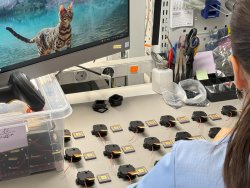
Another R&D lab is present in Latvia, with the best 3D printing machines for prototyping, CAD machines and a very welcoming layout with even a loft. We visited the lab without the designers or future designs… for obvious reasons!
The circuit board manufacturing is responsible for building the electronics hearts of the Thermal Imaging devices, and the deceptively smaller room compared to the other areas houses a high end SMT assembly line. Most of the assembly is taken care of microelectronics robot machines. Vertical storage warehouses hold all the components. Organization is incredibly meticulous, every single part, no matter how small, is completely traced from supplier all the way into the final device.
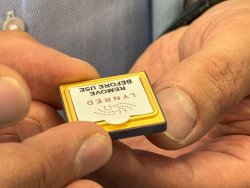
Once the electronic PCBs (Parts Component Board) are built, they are assembled into the modules I’ve mentioned and that we saw placed into the assembly lines; in this case we are finally shown what an actual Focal Planar Array microbolometer sensor looks like, and in this case a very high end Lynred ATTO1024-02 1024 x 768 12µm European made part.
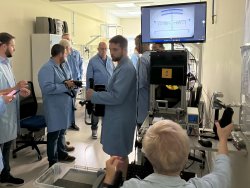
System NETD using these parts is better than 15mK! Also, one of the composite parts we saw earlier in the Plastics Division was indeed used to support the sensor and electronics.
We are guided along more thermal imaging optics assembly lines and areas, and finally, a very interesting display closes our visit: every single component and assembly that goes into a completed product, a Telos and a Thermion, are neatly placed on a table for us to see.
Very interesting and informative.
A hit at the shooting range with Pulsar
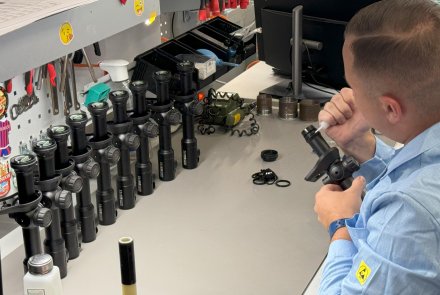
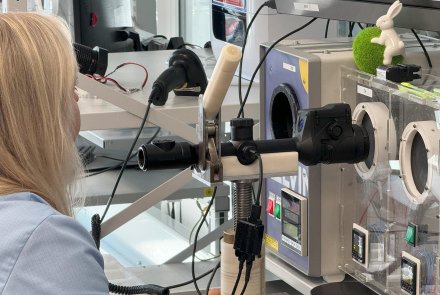
My visit continues with a day at the shooting range, where I’ve taken part in a friendly competition, in which I’ve been able to use most of the current (and even some future) Pulsar riflescopes and clip-on attachments in live fire drills.
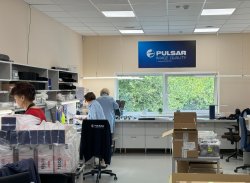
One exercise consisted in assembling a Krypton COTS in front of a Yukon Jaeger daytime scope on a Verney -Carron full bore straight-pull bolt action rifle and shoot three rounds at a running boar target.
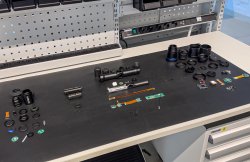
Another, using a new version of the Thermion II thermal imaging riflescope and a Digex C50 digital night vision riflescope again on high power Tikka T3 bolt action hunting rifles, to shoot standing and from the tripod at a boar silhouette at a distance of 100 meters; the last exercise, using a .22 bolt-action rifle to shoot at different distances up to 100m using the ballistic app inside the Talion riflescope.
Suffice to say, I’ve had a real blast, and apart from the fun, the experience also was extremely informative – as some products were still to be released, and others were brand new, such as the Thermion II LRF thermal imaging rifle scope used.
In the dark, talking around the fireplace and testing Pulsar optics
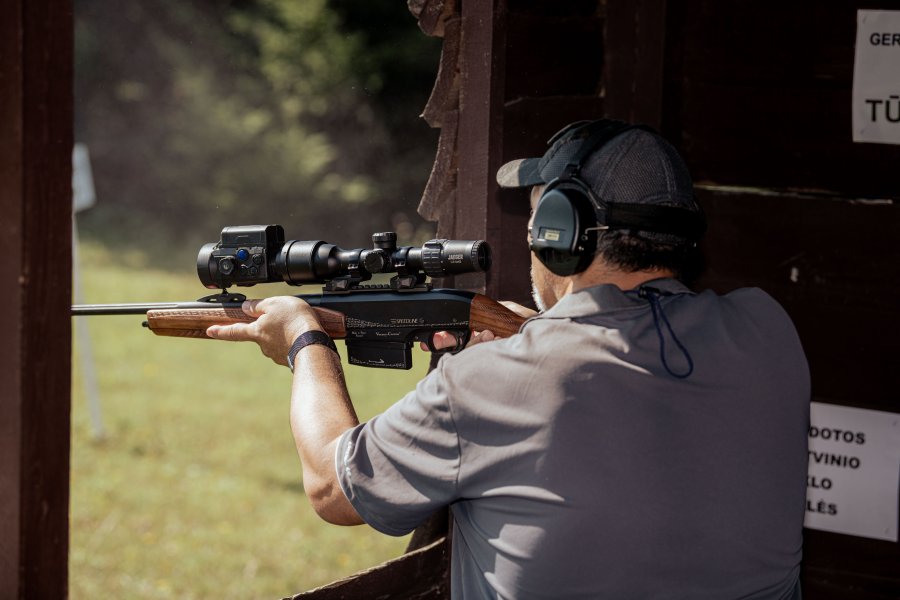
The last day before going back from this amazing trip was spent in an incredible haven nested in the Northern uncontaminated nature in Lithuania, the Farmers Circle agritourism hotel, where I had the chance to meet, really meet and talk about our experiences around a warming fireplace, with great food – all from the local farms – drinks and friendship.
But before that, we attended another presentation, that also included very interesting but confidential information – just to convey that great innovations are once again going to be released by Pulsar. Alas, due to NDA, none of that will make it into this article.
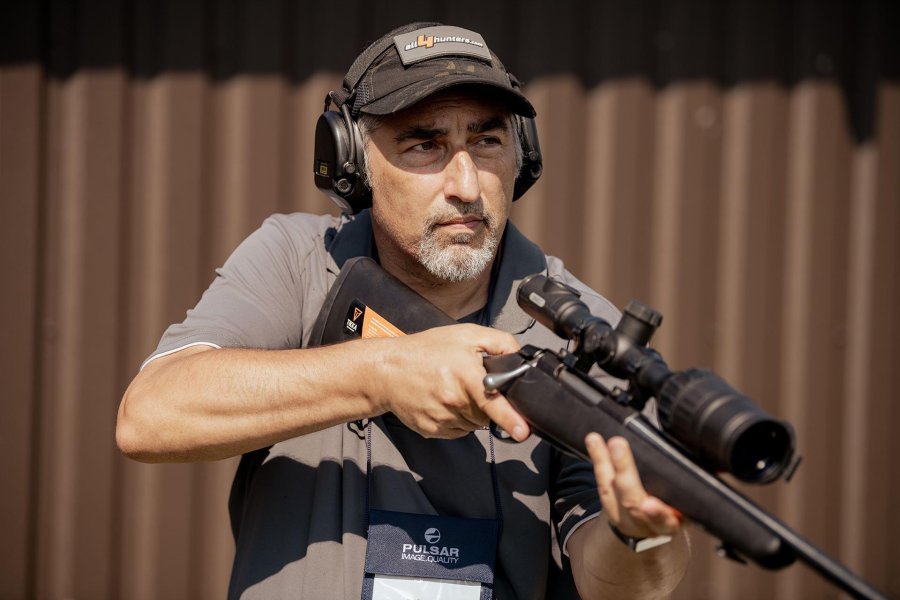
And as the day progressed into twilight and finally darkness, a number of gazebos set up on a ledge overlooking a valley with farms and animals was loaded with Pulsar thermal imaging devices for us to test. Riflescopes on testing stocks, clip-on attachments, binoculars, observation scopes, and accessories – including Stream Vision aps on smartphones to showcase it operation. A every "station" Pulsar techs showcased the features and performance of each product and answered every question I had during the test. It was an incredible occasion to compare performances, specs and feature sets from different Pulsar devices all at the same time. The day has ended, time to walk up with everyone else to that fireplace that is the only source of illumination in the darkness, and after that, my time with Pulsar also comes to an end. Tomorrow, I’m back home, leaving a little bit of my heart here with these great guys from a great company.
For more information: https://pulsarvision.com


